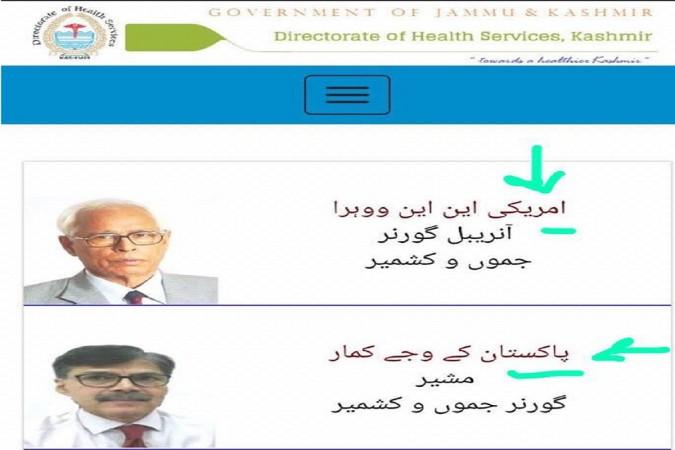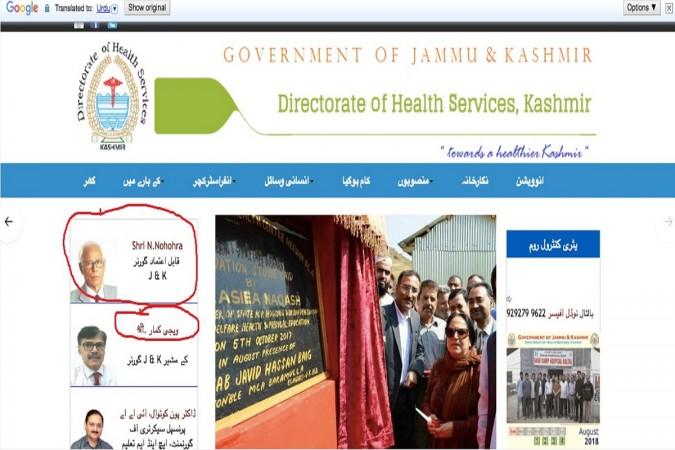
Has somebody hacked into the wesbite of Jammu and Kashmir government's Department of Health Services' website? Maybe.
Website visitors were taken aback on Sunday, Aug 13 afternoon after the website's Urdu version (after translating the website from English to Urdu using Google translate) mentioned Governor NN Vohra as an 'American' and Advisor K Vijay Kumar as a 'Pakistani'. For Vohra, the official website of the Jammu and Kashmir Health Department (dhskashmir.org) read "Amreeki NN Vohra". For Kumar, the website read "Pakistani Vijay Kumar". Narinder Nath Vohra is a retired 1959-batch IAS officer of Punjab cadre and the current and 12th Governor of the Indian State of Jammu and Kashmir.
The mistake, which was first pointed out by a Kashmiri journalist AA Fayyaz, has left many baffled as people are thinking that the website may have been hacked by Pakistani hackers or it may be the work of some disgruntled officer from the department itself.
While the original website in English did not have such a mistake, it was when one translated it to the Urdu version using Google translation, that it showed the Governor and Advisor to the Governor as American and Pakistani nationals, which indicates that it must have been deliberate or done as a prank.
The website is designed, developed and maintained by Saytechnologies and the IT Cell of the Department of Health Services of Kashmir (DHSK).
IBT tried contacting the Department of Health Services Kashmir but were unable to reach them as no one picked up the phone call. We have also mailed a query to the admin of the website which remains unanswered till the time this story was published.

The department later fixed the error but it looks like they did it in a rush as Governor NN Vohra's name was replaced with "N Nohohra" while Advisor Kumar's name was written using both Devnagri and Urdu scripts.
There have been numerous instances of India's government websites being under attack before. On April 6 this year, India's official ministry of defence (MoD) website, mod.gov.in, was reportedly hacked. Instead of the homepage, visitors to the site saw the following message: "The website encountered an unexpected error. Please try again later." Media reports pointed at Chinese hackers since a word in Mandarin appeared on the homepage. In a similar incident, the National Security Guard (NSG) website was hacked in 2016, revealing extreme security vulnerability in the country. According to reports, over 22,000 Indian websites, including 114 government portals, were hacked between April 2017 and January 2018.
















